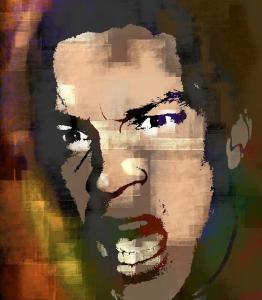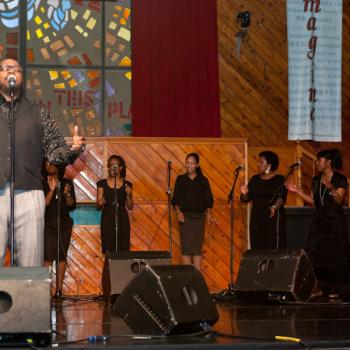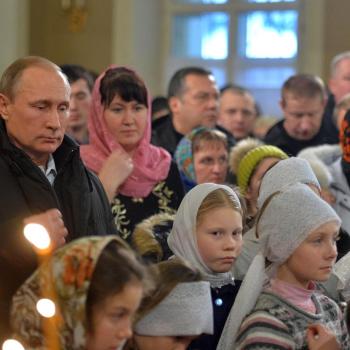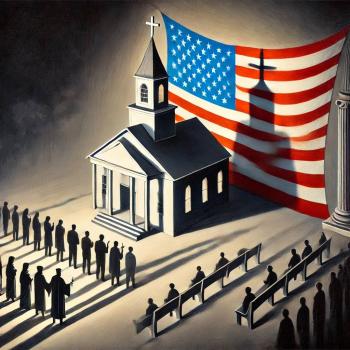
A Triangle of Biblical Proportions, Murderous Intentions & A Tangled Tale of Love
As a cradle Christian, I grew up hearing stories about family conflicts in the Bible. Deception and a determination to ignore God’s will often led to family conflict and even tragedy, especially in the lives of Isaac and Ishmael, Jacob and Esau, and Rachel and Leah.
The Bible describes a trail of sin that winds its way through Abraham’s family from one generation to the next. We see Sarah and Abraham’s willfulness against God, Jacob and his mother’s treachery against Esau and finally, Leah and her father’s plan to deceive Jacob.
But these people lived some 3,500 years ago if they lived at all. Why should we care about them? What can we learn from them?
Family Conflicts in the Bible: Isaac & Ishmael
Genesis 12-24 shares the story of a dysfunctional family that includes a triangle of epic proportions, a near-tragedy and the fulfillment of God’s purpose. This story, of course, concerns the complicated family life of Abraham, who is revered today as the patriarch of three major world religions (Judaism, Christianity and Islam).
The family drama begins after God tells Abram, as he was originally known, to leave his home in Mesopotamia and travel to a land that God promised his people. God also says that Abram’s descendants will multiply and become a great people.
But there is one problem. Abraham and his wife Sarah have been unable to conceive. Sarah is long past childbearing age, and the idea of giving birth at her age seems ludicrous.
Yet, she is determined to have a child one way or another and decides to take matters into her own hands. ‘The Lord has prevented me from having children, she told Abraham. Go sleep with my servant. Perhaps I can have children through her.’ And he agreed.
It’s the ancient version of surrogacy. Hagar becomes pregnant with a son, Ishmael, but it soon causes a rift in Abraham’s household. Hagar becomes contemptuous of Sarah, and Sarah reacts by treating Hagar harshly and blaming Abraham for the situation.
The conflict worsens when Sarah gives birth to a son, Isaac, as God had promised. With a child of her own, Sarah becomes afraid that Ishmael will receive Abraham’s inheritance. She convinces a reluctant Abraham to send the boy and his mother away.
It could have been a deadly turn of events for the mother and son, except that God sustained them and was with Ishmael until he grew up, according to Britannica. The Lord also promised he would give Ishmael more descendants than you can count, thereby making Abraham the patriarch of two great peoples.
The Consequences
Most of Abraham’s family problems stem from Sarah’s willfulness and impatience for a child. Rather than trust in God’s timing, she rushes ahead with a surrogacy plan, and Abraham agrees to it.
Abraham finally has the long-awaited son – Ishmael – through Hagar, but when Sarah insists that he send Hagar and Ishmael away, he does so. And finally, there’s Hagar, whose arrogance enflames an already tense situation.
Isaac and Ishmael may or may not have had a good relationship as children, but family dynamics are against them in the long run. Isaac goes in one direction and became a patriarch of the Jews and Christians, while Ishmael plays a major role Islamic history. (Tradition has it that he was an ancestor of Muhammad.)
And the rancor that developed between the Jews and Arabs in ancient times continues to this day.
We see this pattern of behavior repeated down through history, though in smaller ways than Abraham’s story. It’s a tale of willfulness, impatience, jealously and an inclination to doubt God. In other words, it reflects some of the ugly character traits that human beings have.
Yet, billions of people revere Abraham today. The heart of his story is found in Genesis 12-22, where you may read it and draw your own conclusions.
Family Conflicts in the Bible: Jacob & Esau
Isaac’s life is filled with family conflict into old age. As an adult, he marries a woman named Rebekah with whom he has fraternal twins named Jacob and Esau. He favors the slightly older son Esau, who becomes a skillful hunter, and Rebekah favors the younger and quieter Jacob.
But parental favoritism is never good, and in this case, it tears the family apart. One day, a famished Esau comes in from the field and encounters Jacob cooking stew. Esau asks for a serving, and his brother agrees on the condition that Esau relinquishes his birthright to him.
A birthright is the right of the firstborn son to inherit his father’s belongings and authority – to become the leader of the family. Esau is too hungry to care in that moment and sells the birthright to Jacob.
But Jacob’s deceit doesn’t end there. One day, Isaac instructs Esau to kill an animal and prepare a meal for him. He promises to bless Esau, but unfortunately for Esau, Rebekah overhears the conversation and plots with Jacob to rob Esau of the blessing. It’s fairly easy to do because Isaac is old and blind and has a difficult time distinguishing between his sons.
Jacob introduces himself as Esau to his father, and Isaac blesses Jacob. When Esau returns from hunting moments after Jacob leaves, Isaac and Esau discover the deception.
Behold, I have made him lord over you, and all his brothers I have given to him for servants, and with grain and wine I have sustained him, Isaac tells Esau.
The young man is furious. He has cheated me these two times. He took away my birthright, and behold, now he has taken away my blessing, he tells his father.
Esau is angry beyond words and goes after his devious brother with the intention of killing him. Rebekah, in the meantime, sends Jacob away to escape his brother’s wrath, and Jacob meets the lovely Rachel. But we’ll soon see that what goes around comes around for Jacob.
Family Conflicts in the Bible: Rachel & Leah
In the tale of Jacob, Rachel and Leah, we have the beautiful younger sister, Rachel, her older and less attractive sister, Leah, and their love interest, Jacob. Physical appearances are important to this story because when Jacob sees Rachel, he immediately falls in love (or lust) and wastes no time in asking for her father’s permission to marry.
Rachel’s father Laban agrees even though tradition dictates that the older sister must marry before the younger one does. And just as Rebekah plotted with Jacob, now Laban devises a deceptive plan with Leah.
By the time Jacob discovers that he’s been tricked, he is bound to Leah for life. Yet, his determination to marry Rachel remains strong, and he agrees to work another seven years for his father-in-law to win her.
The Consequences
Oh, what a tangled web we weave….
Most modern-day Americans place great value on marrying for love, but keep in mind that this story takes place about 3,500 years ago. An arranged marriage may not have been unusual, but Leah must get hurt as the story unfolds.
So, where is God in this story? He’s there, as he always is, and Leah turns to him in prayer. In his great wisdom, God blesses her with something more important than physical beauty – he blesses her with children.
Jacob pays for his treachery against Esau in that he’s forced to run for his life, leaving behind his homeland and the mother who favors him. He marries Rachel, but only after working for 14 years to win her hand. Then, Jacob loses Rachel at a young age, and Jacob spends most of his life with his second choice — Leah. Did he ever love her? I’m not sure.
However, Jacob is blessed with children, as he fathers 12 sons (daughters weren’t important in the time in which he lived). Leah has six sons, while Rachel is the mother of two — Joseph and Benjamin — but dies giving birth to the latter. Two servants give birth to the remaining sons. And it’s Leah’s family line that leads directly to King David and then to Christ through her son Judah.
But Jacob apparently learns nothing from his parents’ favoritism. He loves his first-born with Rachel — Joseph — above all his other children and suffers the consequences. But that’s another story.
The Bible recounts the story of Leah, Rachel and Jacob in Genesis chapters 29-30.
Lessons Learned
The stories of Isaac and Ishmael, Jacob and Esau, and Rachel and Leah are a tangled web that fuels conflict. One generation after another fights God and pays the price for their arrogance in the face of God, their determination to manipulate people and their terrible parenting skills.
As we follow the trail of sin that winds through generations of Abraham’s family, we need to think about consequences. Society has changed in many parts of the world in the past 3,500 years or so, but people haven’t. We aren’t that different from the people who lived, loved and deceived in ancient times.
(We’ll end these biblical stories here, but you may read about the Abrahamic religions in today’s world in a recent post I wrote by clicking here.)

















